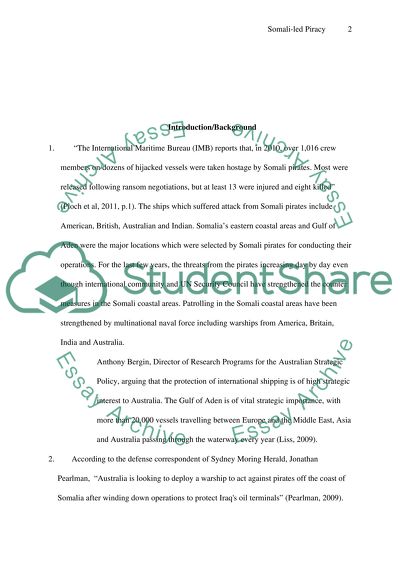Cite this document
(Causes of the Increase in Somali-led Piracy off the Horn of Africa Term Paper, n.d.)
Causes of the Increase in Somali-led Piracy off the Horn of Africa Term Paper. Retrieved from https://studentshare.org/social-science/1581933-examine-the-causes-of-the-increase-in-somali-led-piracy-off-the-horn-of-africa-during-the-past-5-years
Causes of the Increase in Somali-led Piracy off the Horn of Africa Term Paper. Retrieved from https://studentshare.org/social-science/1581933-examine-the-causes-of-the-increase-in-somali-led-piracy-off-the-horn-of-africa-during-the-past-5-years
(Causes of the Increase in Somali-Led Piracy off the Horn of Africa Term Paper)
Causes of the Increase in Somali-Led Piracy off the Horn of Africa Term Paper. https://studentshare.org/social-science/1581933-examine-the-causes-of-the-increase-in-somali-led-piracy-off-the-horn-of-africa-during-the-past-5-years.
Causes of the Increase in Somali-Led Piracy off the Horn of Africa Term Paper. https://studentshare.org/social-science/1581933-examine-the-causes-of-the-increase-in-somali-led-piracy-off-the-horn-of-africa-during-the-past-5-years.
“Causes of the Increase in Somali-Led Piracy off the Horn of Africa Term Paper”. https://studentshare.org/social-science/1581933-examine-the-causes-of-the-increase-in-somali-led-piracy-off-the-horn-of-africa-during-the-past-5-years.


